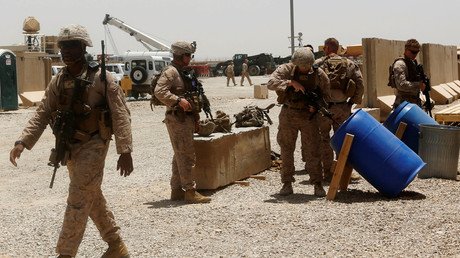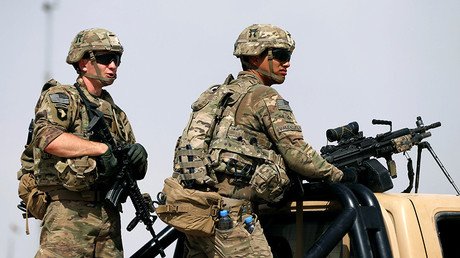Assisting US in Afghanistan was wrong choice – Pakistani FM to RT
Lending assistance to the US as it sought to influence the internal affairs in Afghanistan both in the 1980s and following 9/11 was a "mistake," Pakistan's Foreign Minister Khawaja Asif has said, telling RT that US actions has made the region less secure.
Back in the 1980s, “we made a wrong choice... and then after 9/11 we again became a conduit of American effort in Afghanistan,” Asif said. “Today, [when] we look back in hindsight, [we] can say in full confidence it was a mistake.”
He said US interferences in the internal affairs of Afghanistan, both in '80s, when it decided to back Islamists fighting the left-wing government supported by the Soviet Union, and in 2000s, when the US invaded Afghanistan following 9/11, led to nothing good and only contributed to a deteriorating security situation in the region.
More than a decade after the US and NATO invasion, Taliban militants still control some 40 percent of Afghan territory, “where they can have sanctuaries, bases and… can operate from there against anybody,” the minister said.
Asif added that the US, meanwhile, accuses Pakistan of “harboring terrorists," even though the Taliban does not need Pakistani territory to operate from.
“Scapegoating Pakistan is not acceptable,” he told RT, adding that Pakistan has been a US defense partner for some 60-70 years. Asif warned that such accusations “compel” Islamabad to “rethink the whole alliance” issue.
The minister referred to the fact that Washington recently accused Pakistan of an“unwillingness” to fight militant and extremist groups that are active in the region, including Taliban.
On Tuesday, the US Marine Corps General Joseph Dunford, the Chairman of the Joint Chiefs of Staff, said the US would not be able to “attain [its] objectives in Afghanistan unless [it] materially changes the behavior of Pakistan.”
“It is unacceptable that Pakistan provides sanctuary, and we ought to bring the full weight of the US government and our coalition partners on Pakistan to ensure that they do not provide the sanctuary that they have provided historically to groups like Haqqani and the Taliban,” he said, as cited by Reuters.
Problem of terrorism needs political solution
The foreign minister also said the threat of terrorism in Afghanistan and other regions of the world cannot be eradicated by armed engagement, as military strategies have proved to be ineffective in combating terrorism and that the issue needs a “political solution.”
To find “a long term solution, a permanent solution to this problem,” one has to deal with the issues that lie at the heart of the conflicts that have been ravaging the regions which have become terrorist hotbeds for decades, Asif said.
“For instance, Iraq is still unsettled. In Syria, the war still goes on. Libya is a state which does not fit the definition of a state anymore,” the minister said, calling on the international community to embrace a “wider, more comprehensive and solution-oriented approach” to combating terrorism.
He also warned, that, should various countries still pursue their narrow political interests instead of joining a collective effort in fighting terrorism, “this… terror and violence can engulf the rest of the world.”
In early September, Islamabad criticized the US administration’s new military-oriented strategy in Afghanistan. At that time, Asif also said there was no military solution for the Afghan conflict and the focus should be shifted to a “politically-negotiated settlement.”
Such a stance appears to be at odds with President Donald Trump’s current position on Afghanistan as he opted to send an additional 3,500 US soldiers to the Asian country in early September. This deployment, confirmed by the Pentagon on September 18, brought the total number of US troops in Afghanistan to around 14,500.
Russia has also slammed Trump's Afghanistan strategy as a “dead-end approach.”














